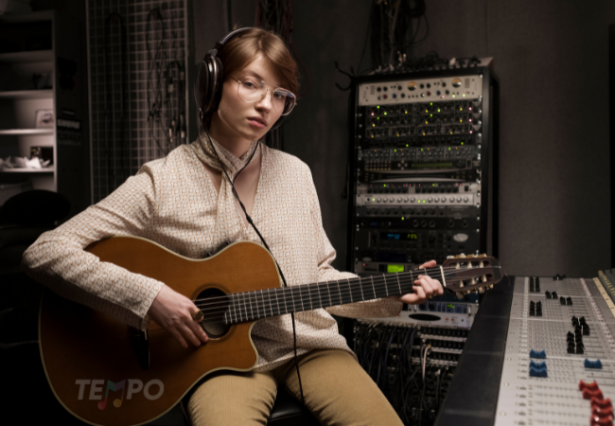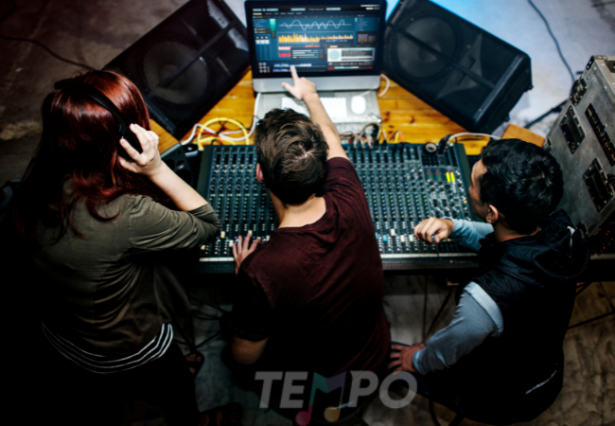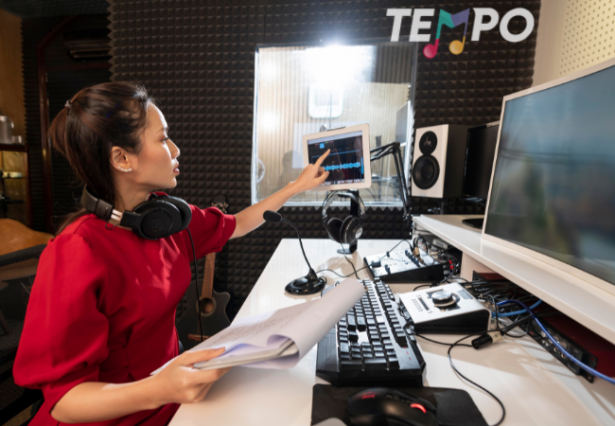The Top Ten Ways to Support Musicians and Songwriters
To say the music industry has changed significantly in the last couple of decades is an understatement. There are a few people remaining on the planet who remember the excitement of rushing to a "record store" to purchase the latest vinyl LP from a favorite band. And many remember calling local radio stations to request a recent hit.
Fast forward many years to today, when technology has turned the music industry upside down. Scribbled notes of song lyrics have been replaced by music publishing software, and concert tours are organized through artist booking platforms. What is the common denominator between outdated music anecdotes and terminology and the music innovations in the digital age?
The root of this question lies with people- the artists, singers, songwriters, players, and bands. The answer lies with the musicians who drive the music industry by writing songs, composing music, recording albums, and performing concert after concert.
And they deserve support now more than ever.
How Has the Music Industry has Changed
The music industry has undergone significant changes due to the rise of the internet and digital technology. Here are a few keyways in which the music business is different today than it was in the past:
-
• The shift from physical media like CDs and vinyl to digital distribution through online platforms like iTunes, Amazon Music, and Spotify.
• Independent distribution is easier for independent artists to make their music available directly to consumers without relying on record labels.
• The internet and popular social media platforms, like Instagram and TikTok, have made music promotion easier for independent artists to build a following.
• Music streaming services have transformed how music is consumed and monetized, generating new options for revenue.
• The music industry now uses analytics to access vast amounts of data targeting consumer behavior and preferences.
• Live performances are more important than ever as a revenue source, especially with the decline of recorded music sales.
How You Can Support Musicians and Songwriters
The support musicians needed used to only come in the form of purchasing albums or buying a concert ticket. As stated above, we know the times have changed; therefore, our behavior and actions must change if musicians and songwriters can continue to earn a living and share their craft. Let's look at ways everyone can employ to support their favorite artists.
Purchase their music.
Buying the music of your favorite musicians and bands supports them financially. Purchase albums or singles in physical or digital formats from various online platforms or purchase physical CDs and vinyl from brick-and-mortar retailers. Some artists have generated new interest in vinyl albums, so these options are often available.
Attend their shows.
Go to their solo performances, club dates, concerts, festivals, songwriters’ nights, and album showcases. Buy tickets and show up. It is just that easy. You can also encourage friends to attend and spread the word about upcoming shows.
Share their music.
Gone are the days when sharing music was you and your friends listening to Dark Side of the Moon with the lights out. Sharing music has never been easier or more effective. By consistently sharing and recommending songs and albums on social media platforms with family, friends, and THE WORLD can spread the word about musicians with lightning speed, thus building their fan base and generating income from their revenue options.
Stream their music.
Fans can also support musicians and songwriters by streaming their music from platforms like Spotify or Apple Music. While the monetary payout for streaming is generally lower than purchasing music, streaming can still help increase popularity, exposure, and revenue.
Donate to crowdfunding campaigns.
Many musicians and songwriters use Kickstarter, Patreon, and GoFundME to raise money for their projects. While trying to earn a living to pay general living expenses, musicians must purchase and maintain instruments and other equipment, pay for recording studio time, and travel to shows. Donating to their campaigns can add to their financial support and help them bring their music to life.
Stay in the know.
Many musicians and songwriters have fan clubs, newsletters, and social media alerts. By becoming members of these information channels, fans can stay up to date on the latest releases, shows, and other news.
Search locally.
Musicians and songwriters are everywhere, even in your own neighborhood. While big music towns like Nashville, New York, or Los Angeles have many clubs and venues, smaller cities and towns also have spaces to showcase local talent. Taking the time to seek out musicians and songwriters just starting out helps generate the buzz about their music. When clubs are filled with fans, artists get another chance to do what they love and build their careers.
Purchase the Merch.
Think about it. How many shirts do you own with artist logos, names, and album covers emblazoned across the front and back? Buying artists’ merchandise like shirts, caps, stickers, and posters can significantly add to their income and advertise their brand.
Who is Singing that Song?
The increase in television streaming services means an increase in the number of shows, which in turn means more opportunities for artists to have their music played. Have you ever watched a show and heard a song that caught your attention but did not know who was singing it? From song identification apps to Google searches, music lovers can discover artists. Then a snowball effect can occur when the music is streamed, purchased, and shared across multiple platforms.
Support the Arts.
This statement may seem simplistic, but it holds incredible power for all songwriters, musicians, ensembles, and bands. Support the arts for current artists and the musical talent of the future. Advocate for music programs in schools and encourage students to sing and play instruments. This continued support will ensure that music and musicians will remain an essential part of our lives.
The music industry has adopted innovative approaches to advancing musicians' careers, like using music publishing software and all-encompassing artist booking agencies. But overall, supporting musicians and songwriters requires a combination of financial and non-financial support from an engaged fanbase. Whether buying their music, attending their shows, or sharing their music with others, every display of support can help musicians and songwriters earn the living they deserve and continue to create great music.








